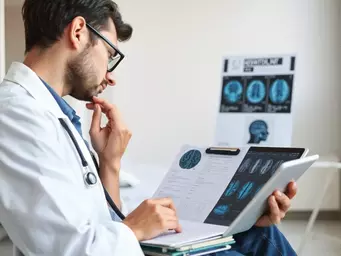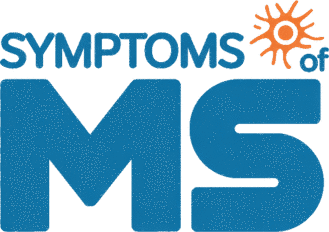My MS: Symptoms and Diagnosis

Have you ever considered how the smallest signs in your body can lead to significant health revelations? Recognizing these early symptoms can be transformational in your health journey. In this piece, I share my personal experiences with multiple sclerosis (MS) and the insights I've gained along the way.
What You Will Learn
- Identifying early symptoms of multiple sclerosis, such as fatigue, visual disturbances, and numbness.
- The importance of tracking symptoms to enhance communication with healthcare providers.
- Coping strategies to manage anxiety and emotional impacts associated with MS diagnosis.
- Lifestyle adjustments, including diet and exercise, that can improve quality of life with MS.
- The power of sharing your story to foster community and connection within the MS community.
- Advocating for MS awareness to improve understanding and support for those affected by the condition.
Journey Through MS: Symptoms, Impact, and Coping
This visual summarizes the early symptoms, emotional impact, and key lifestyle changes experienced during the journey with Multiple Sclerosis, offering insights into recognizing, coping, and adapting to the condition.
Early Symptoms of MS
- Unmanageable Fatigue
- Blurred Vision
- Numbness/Tingling in Limbs
Crucial indicators for early recognition.
Emotional Impact & Coping
- Anxiety & Uncertainty
- Mindfulness/Meditation
- Talking to Support System
Strategies to manage mental well-being.
Lifestyle Adaptations Post-Diagnosis
- Balanced Diet
- Regular Exercise
- Vitamin D Supplements
Proactive steps for symptom management.
Advocacy & Community
- Sharing Personal Story
- Patient Advocacy
- Promoting MS Awareness
Empowering self and others through connection.
Understanding Multiple Sclerosis: My Personal Journey
Living with multiple sclerosis (MS) has been a journey filled with uncertainty and discovery. I want to share my experiences to help others who may be navigating similar challenges. Recognizing the initial signs of MS was my first step towards understanding this complex condition.
For many, including myself, the path to diagnosis can be fraught with confusion. It's essential to identify those early symptoms, as they can often serve as the road signs guiding us toward seeking the appropriate medical care. Here’s what I experienced.
The Initial Signs: Recognizing Early Symptoms of MS
It was during the early days of my journey that I noticed subtle changes in my body. These symptoms, though often dismissed, turned out to be crucial indicators of MS. Here are some common early symptoms that I encountered:
- Fatigue that seemed unmanageable
- Visual disturbances, including blurred vision
- Numbness and tingling sensations in my limbs
Understanding these symptoms helped me communicate better with my healthcare provider. It's vital for anyone experiencing similar signs to take them seriously and seek further evaluation. For detailed diagnostic criteria, you can refer to the updated diagnostic criteria for MS.
Common Early Symptoms: My Personal Experiences
When I first began to feel an overwhelming sense of fatigue, I thought it was just a result of my busy lifestyle. However, the fatigue was unlike anything I had experienced before. I realized that it wasn’t just tiredness; it was a profound exhaustion that persisted despite a good night's sleep. I started keeping a journal to track these episodes, which proved invaluable in discussions with my neurologist.

How I Noticed Visual Disturbances and Fatigue
Visual disturbances were another early symptom that caught me off guard. I remember feeling as though I was seeing through a foggy window. One day, while reading, I noticed that some letters appeared blurry. This was concerning! I could no longer brush it off as just needing new glasses.
These experiences taught me the importance of being observant. When symptoms arise, jotting them down can lead to a clearer picture of what’s happening in your body.
Understanding Numbness and Tingling Sensations
Numbness and tingling sensations in my hands and feet were alarming. It often felt like pins and needles, and sometimes it left me hesitant to move. I learned that these sensations were known as paresthesia, a common symptom for those with MS. Recognizing this symptom was crucial in piecing together my health puzzle.
Connecting these early signs to MS was a challenge, but it ultimately helped me advocate for myself in a medical setting.
Emotional Impact and Coping with Early Symptoms
The emotional toll of these early symptoms was significant. I often felt a cloud of anxiety hovering over my daily activities. The uncertainty of what was happening in my body weighed heavily on me. During this time, I worked on strategies to manage that anxiety and reinforce my resilience.
Here are some techniques that helped me cope:
- Practicing mindfulness and meditation
- Engaging in physical activity, even a short walk
- Talking to friends and family about my feelings
Building these coping strategies helped me navigate the emotional landscape that accompanies a potential diagnosis of MS.
Dealing with Anxiety and Uncertainty Before Diagnosis
Before my diagnosis, anxiety often felt like my constant companion. I worried about what the symptoms could mean and how they would affect my life. Opening up to friends and family about my fears was an important step; sharing these feelings helped lessen the burden.
I also sought information from reputable sources like the MENACTRIMS 2023 guidelines on MS, which provided clarity amidst the chaos of uncertain medical terminology.
Building Resilience: Strategies to Cope with Initial Challenges
As I navigated this journey, I learned the value of resilience. Creating a support system around me was essential. I started small but made it a regular habit to engage with friends, family, and even online support groups. Their encouragement made a world of difference during those tough times. For further information on treatment and diagnosis, the Mayo Clinic offers valuable insights.
It’s empowering to know that you’re not alone on this journey. Embracing a proactive approach to your health and well-being helps in managing the emotional impact of MS.
Pro Tip
One of the best ways to manage the early symptoms of multiple sclerosis is to maintain a detailed symptom diary. By tracking your symptoms, including their timing, duration, and intensity, you can provide valuable insights to your healthcare provider. This information can help in tailoring a treatment plan that fits your unique needs and improves your quality of life.
Frequently Asked Questions About Multiple Sclerosis
What are the common early symptoms of Multiple Sclerosis (MS)?
Common early symptoms of MS often include unmanageable fatigue, visual disturbances like blurred vision, and numbness or tingling sensations (paresthesia) in the limbs. These symptoms can vary in intensity and duration.
Why is tracking symptoms important for an MS diagnosis?
Tracking symptoms, including their timing, duration, and intensity, provides valuable information to healthcare providers. This detailed record helps in accurate diagnosis and in developing a personalized treatment plan.
How can I cope with the anxiety and uncertainty associated with a potential MS diagnosis?
Coping strategies include practicing mindfulness and meditation, engaging in light physical activity, talking to a supportive network of friends and family, and seeking professional counseling. Information from reputable sources can also provide clarity.
What lifestyle changes can help manage MS symptoms after diagnosis?
Lifestyle adaptations can include prioritizing a balanced diet rich in anti-inflammatory foods, incorporating regular exercise (like yoga, walking, or swimming), and taking supplements such as Vitamin D. Listening to your body and resting when needed is also crucial.
Why is it important to share personal stories and engage in patient advocacy for MS?
Sharing personal stories fosters a sense of community and connection, helping others feel less isolated. Patient advocacy raises awareness about MS, educates the public, and contributes to improved research and treatment options for the condition.
Reflecting on My MS Journey: Lessons Learned
Reflecting on my journey with multiple sclerosis (MS) has been an enlightening process. Every experience—the challenging moments, the small victories—has taught me valuable lessons that I want to share. Navigating life post-diagnosis required me to make significant adjustments, and I believe these insights could resonate with others facing similar paths.
In this section, I’ll discuss the lifestyle changes I made after my diagnosis, the importance of emotional support, and how sharing our stories can empower others in the MS community.
Adapting My Lifestyle: What I Changed Post-Diagnosis
One of the first steps I took after my diagnosis was to reevaluate my lifestyle. Managing MS requires a proactive approach, and I found that making specific changes significantly improved my quality of life.
- Prioritizing a balanced diet to support my overall health
- Incorporating regular exercise to boost my energy levels
- Including supplements like Vitamin D to enhance my wellness
These adjustments weren't just about physical health; they also provided me with a sense of control over my symptoms. For instance, I found that eating a diet rich in anti-inflammatory foods helped reduce fatigue and improve my overall well-being.

The Importance of Diet and Exercise in Managing Symptoms
When it comes to managing symptoms, diet and exercise are crucial. I focused on whole foods, such as fruits, vegetables, lean proteins, and whole grains. Regular exercise became my outlet—whether it was yoga, walking, or swimming, staying active kept my body engaged and my mind clear.
Additionally, I tried to listen to my body; on days when fatigue struck hard, I allowed myself to rest without guilt. Remember, everyone’s journey is unique, so I encourage others to find what works best for them!
Incorporating Vitamin D and Wellness Programs into My Routine
Vitamin D has been a significant addition to my wellness plan. After learning about its potential benefits for individuals with MS, I began taking supplements regularly. I also explored various wellness programs, such as mindfulness and relaxation techniques, which helped me manage stress and anxiety.
- Participating in local wellness workshops
- Trying meditation apps for guided sessions
- Joining community exercise classes to stay motivated
This holistic approach has empowered me to take charge of my health, creating a balanced routine that nurtures both my body and mind.
Emotional and Mental Health: Ongoing Support Strategies
Maintaining emotional and mental well-being is equally vital. It’s essential to recognize when you need support and to reach out. I’ve found that journaling my thoughts and feelings has been therapeutic, allowing me to process my experience actively.
Moreover, I regularly connect with a counselor who specializes in chronic illnesses. This professional guidance has helped me navigate the emotional landscape of living with MS. If you're struggling, I urge you to consider seeking similar support—it can make a world of difference.
Encouragement for Others: Sharing My Story
One of the greatest lessons I’ve learned is the power of sharing my story. By opening up about my experiences with MS, I not only help others but also foster a sense of community and connection.
When we share our journeys, we create a ripple effect, encouraging others to speak out and share theirs too. It’s a reminder that we are not alone in this fight!
Why Sharing Your Story Matters in the MS Community
In the MS community, every story shared adds a unique layer of understanding and support. My voice can help someone else feel less isolated, and in turn, their experiences can guide me. Together, we create a tapestry of shared knowledge that can be incredibly empowering.
- Opening up about symptoms and daily challenges
- Celebrating milestones and victories, no matter how small
- Encouraging others to seek help when needed
It’s about building a network where we can lean on each other during tough times and celebrate successes, fostering resilience among us all.
Exploring Patient Advocacy and the Importance of MS Awareness
Another way to contribute is through patient advocacy. Raising awareness about MS not only educates others but also helps to improve research and treatment options. I’ve gotten involved with local organizations and campaigns that promote MS awareness, and it feels empowering to be part of something larger than myself.
Every conversation about MS spreads knowledge, which can lead to better understanding and support for those affected. I encourage everyone to find ways to advocate for themselves and others in the MS community.
Invitation to Connect and Share Experiences
Lastly, I invite you to connect with me and share your experiences! Whether through social media, support groups, or community events, let’s build a network of shared stories and encouragement. Together, we can navigate the complexities of MS and create a supportive community that uplifts and empowers one another.
Your story matters, and I would love to hear it. Remember, we are in this together!
Recap of Key Points
Here is a quick recap of the important points discussed in the article:
- Recognizing early symptoms of MS, such as fatigue, visual disturbances, and numbness, is crucial for timely diagnosis.
- Keeping a journal to track symptoms can enhance communication with healthcare providers.
- Developing coping strategies, including mindfulness and physical activity, is vital for managing the emotional impact of MS.
- Adapting lifestyle choices, such as prioritizing a balanced diet and regular exercise, can improve quality of life post-diagnosis.
- Sharing personal experiences fosters community support and awareness within the MS community.









